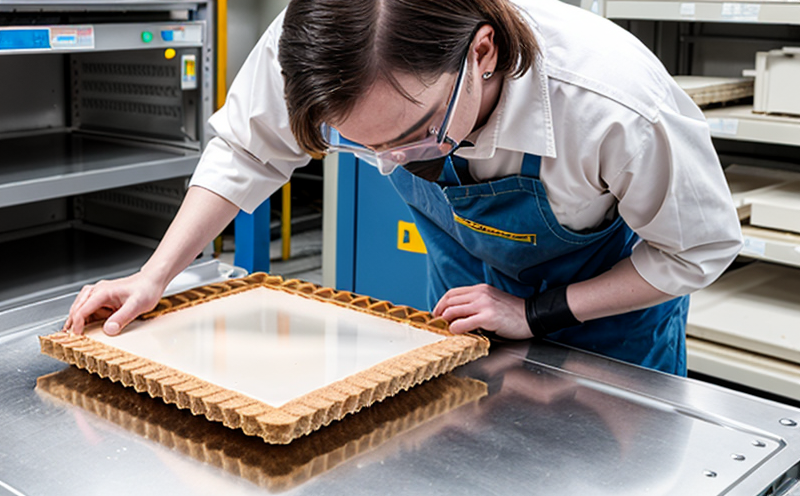Wafer & Substrate Testing
Wafer and substrate testing is a critical process in the semiconductor industry aimed at ensuring that wafers meet stringent quality standards before they are used for further processing into microchips. Wafers, or substrates, serve as the foundation for creating integrated circuits and are manufactured from materials like silicon, sapphire, or gallium arsenide. The testing of these wafers ensures their suitability for manufacturing processes by identifying defects that could compromise the final product's performance.
The process begins with a thorough inspection of incoming wafers to confirm they meet initial specifications such as size, thickness, and crystal structure. This is followed by advanced non-destructive tests designed to detect imperfections within the wafer’s surface and internal layers. These tests include optical microscopy, atomic force microscopy (AFM), x-ray diffraction (XRD), scanning electron microscopy (SEM), and electrical conductivity measurements.
Electrical conductivity testing measures how well a wafer conducts electricity, which is crucial for understanding its suitability for specific applications. This can involve resistivity mapping using four-point probe methods to assess the uniformity of electrical properties across the wafer surface. Additionally, thermal conductivity tests help evaluate if the material will dissipate heat effectively—a critical factor in high-performance microchips.
The testing process also includes mechanical property assessments such as hardness and elastic modulus measurements using indentation techniques or nanoindentation. These tests are essential for ensuring that wafers can withstand the stresses encountered during manufacturing processes without fracturing or deforming.
Once all tests have been completed, detailed reports are generated outlining any defects found along with their locations and severity levels. This information is invaluable to quality managers and R&D engineers who use it to make informed decisions about whether a wafer should be used as-is, reworked, or scrapped altogether.
At Eurolab, our state-of-the-art facilities employ industry-leading equipment such as scanning electron microscopes (SEM) capable of resolving defects down to nanometer scales. Our experienced technicians ensure that every wafer undergoes rigorous testing according to international standards like ISO 14644-1 for cleanroom classification and ASTM E578 for hardness testing.
By investing in comprehensive wafer testing, manufacturers can significantly reduce costs associated with rework or scrap while improving overall yield rates. This proactive approach not only enhances product quality but also contributes positively to sustainability efforts by minimizing waste generation throughout the supply chain.
Scope and Methodology
| Test Type | Description |
|---|---|
| Optical Microscopy | Visual inspection of wafer surfaces for visible defects. |
| Atomic Force Microscopy (AFM) | High-resolution imaging to detect nanoscale surface features. |
| X-Ray Diffraction (XRD) | Determines crystal structure and orientation within the wafer material. |
| Scanning Electron Microscopy (SEM) | Provides detailed views of the wafer’s surface topography at high magnification. |
| Electrical Conductivity Measurements | Evaluates how efficiently electrical current can flow through the material. |
| Four-Point Probe Method | Measures resistivity across different regions of the wafer for uniformity checks. |
| Nanoindentation | Assesses mechanical properties like hardness and elastic modulus by applying controlled loads. |
The scope encompasses a wide range of tests tailored specifically to identify potential issues early in the manufacturing process. Each test contributes unique insights into various aspects of wafer quality, from visual appearance to physical and electrical characteristics. By combining these diverse methodologies, we provide an all-encompassing evaluation that ensures only high-quality wafers proceed further along the production line.
Eurolab Advantages
- Accurate & Consistent Results: Our advanced instrumentation and trained personnel guarantee precise measurements every time.
- Comprehensive Testing Capabilities: We offer a full suite of tests covering all relevant parameters for wafer quality assessment.
- Industry Leading Standards Compliance: All our procedures adhere strictly to international standards such as ISO 14644-1 and ASTM E578.
- Custom Solutions: Tailored testing protocols based on client-specific requirements enhance productivity and efficiency.
- Expert Technicians: Our team comprises highly skilled professionals with extensive experience in semiconductor testing.
- Fast Turnaround Times: Efficient processes ensure quick delivery of results without compromising accuracy or comprehensiveness.
- Comprehensive Reporting: Detailed reports include all findings along with actionable recommendations for improvement if necessary.
At Eurolab, we pride ourselves on providing top-tier services that meet the stringent demands of the semiconductor industry. From initial inspection to final certification, our commitment to excellence ensures you receive reliable information about your wafers’ condition.
Frequently Asked Questions
At Eurolab, we understand these nuances and provide comprehensive testing services that cater specifically to your needs.





